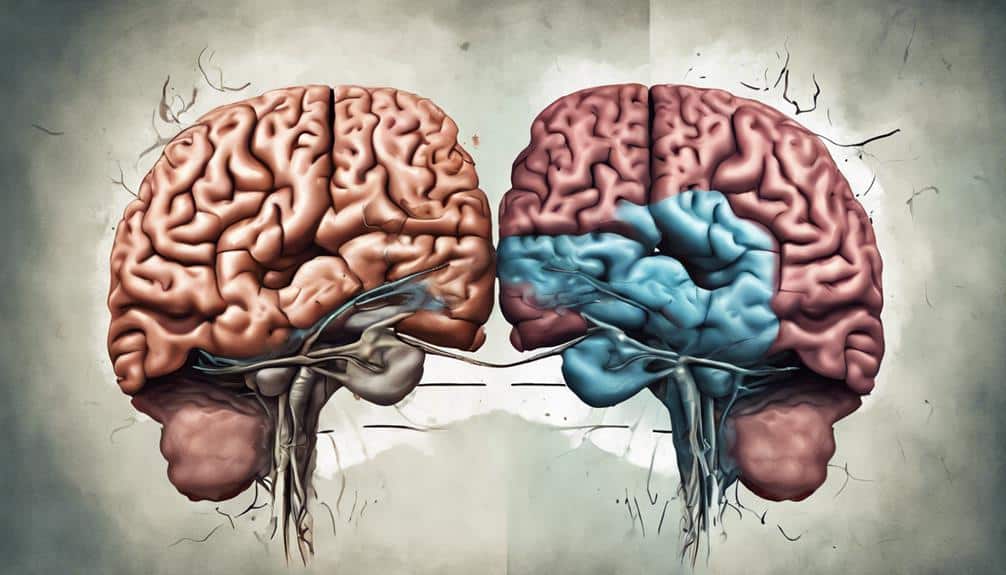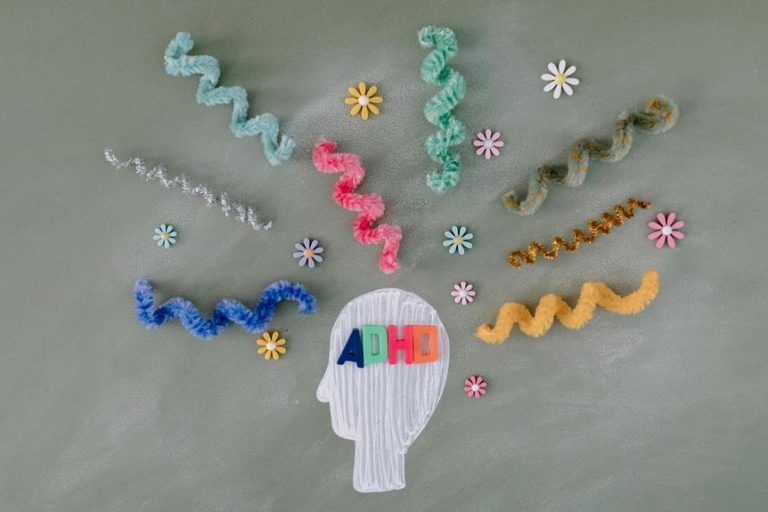Apd Adhd
Having a child with both APD and ADHD can present unique challenges in their academic and social life. Imagine moving through a maze where every sound and distraction is amplified, making it hard for your child to focus and respond promptly.
Understanding how these conditions intertwine and impact each other is important for effective management and support. Let's explore the complexities of managing APD and ADHD simultaneously and discover strategies that can help individuals thrive in their daily activities.
Key Takeaways
- Differentiating between ADHD and APD is crucial for accurate diagnosis.
- Audiologists diagnose APD through specialized auditory processing tests.
- Symptoms of APD include challenges in processing and understanding auditory information.
- Accommodations and tailored interventions help individuals manage the impact of ADHD and APD.
Understanding ADHD and APD

In delving into the complexities of ADHD and APD, it becomes evident that understanding the distinct nuances of each condition is paramount for accurate diagnosis and tailored intervention strategies. While ADHD primarily affects attention and behavior, Auditory Processing Disorder (APD) specifically impacts how the brain processes sound information, particularly spoken language. Children with ADHD may also exhibit symptoms of APD, such as difficulty following verbal instructions or struggling to discern speech in noisy environments.
Research indicates a complex relationship between ADHD and APD, with overlapping symptoms making it challenging to differentiate between the two. Individuals with ADHD may experience difficulties in auditory processing due to impairments in the central auditory nervous system. This underscores the importance of proper diagnosis to ensure that interventions address the specific needs of each condition.
Furthermore, while ADHD medication can help manage symptoms of inattention and hyperactivity, it may not directly improve auditory processing deficits associated with APD. A thorough approach that considers both conditions is essential for developing effective intervention strategies for children facing challenges in learning and language development.
Symptoms and Diagnosis

When evaluating Auditory Processing Disorder (APD), healthcare professionals conduct thorough evaluations to identify specific symptoms and processing challenges. Symptoms of APD include difficulties in sound direction perception, understanding speech in noisy environments, and delayed responses during conversations.
Children with APD often request repetition in conversations and struggle with rapid speech comprehension. Healthcare professionals, particularly audiologists, diagnose APD through auditory processing tests to assess how auditory information is processed. This disorder is characterized by challenges in distinguishing similar sounds and accurately processing auditory information.
It's essential to differentiate between ADHD and APD based on distinct symptoms like difficulties in sound localization and struggles with phonemic awareness for precise diagnosis and appropriate intervention. By recognizing these symptoms and utilizing specialized auditory processing tests, healthcare professionals can accurately diagnose and support children with APD in developing their listening skills effectively.
Impact on Daily Life

Individuals with Auditory Processing Disorder (APD) may find themselves facing significant challenges in various social settings due to their struggles with understanding conversations and background noise. The impact of APD on daily life can be profound, affecting how individuals process information, follow conversations, and interact with others.
Children with attention deficit hyperactivity disorder (ADHD) often experience difficulties in maintaining focus, following instructions, and controlling impulsive behaviors, leading to challenges in academic performance and social interactions. The differences between APD and ADHD frequently overlap, with both conditions affecting attention, communication, and learning abilities.
Symptoms of Auditory Processing, such as difficulty understanding speech in noisy environments or following rapid speech, can make everyday tasks like listening in class or engaging in conversations challenging for individuals with APD. Additionally, managing central auditory processing disorder and ADHD in daily life may require specialized interventions, such as auditory processing assessments, tailored strategies, and accommodations to help individuals overcome learning difficulties and navigate social situations effectively.
Treatment Options for ADHD

Treatment options for ADHD encompass a range of approaches, including medication, behavioral therapy, parent training programs, and classroom accommodations. When managing ADHD, it's important to take into account various strategies to address the diverse needs of individuals with this condition.
As someone who may be exploring treatment options, understanding the key interventions available can help in making informed decisions. Here are essential elements to take into account:
- Stimulant Medications: Such as methylphenidate (e.g., Ritalin) and amphetamines (e.g., Adderall) are commonly prescribed to manage ADHD symptoms.
- Non-Stimulant Medications: Alternative options like atomoxetine (Strattera) and guanfacine (Intuniv) are also effective in treating ADHD.
- Behavioral Therapy: Including cognitive-behavioral therapy and social skills training can complement medication for a thorough treatment.
- Parent Training Programs and Classroom Accommodations: These play an important role in providing support and creating environments conducive to the success of individuals with ADHD.
Regular monitoring by healthcare providers is important to adjust treatment plans and ensure effective management of ADHD symptoms.
Treatment Options for APD

When considering treatment options for Auditory Processing Disorder (APD), it's important to explore a combination of strategies tailored to individual needs.
Speech-language therapy can enhance language processing skills, while assistive listening devices like FM systems offer practical support in daily communication.
Classroom accommodations and cognitive training programs focusing on auditory skills play an essential role in managing APD symptoms effectively.
Therapy for APD
To address Auditory Processing Disorder (APD), therapy options encompass speech-language therapy, cognitive behavioral therapy, auditory training programs, and environmental modifications. Here are some key aspects of therapy for APD:
- Speech-Language Therapy: Improves language processing skills important for understanding auditory information.
- Cognitive Behavioral Therapy: Helps manage anxiety related to auditory challenges, enhancing coping mechanisms.
- Auditory Training Programs: Focus on sound discrimination and auditory memory to enhance processing abilities.
- Environmental Modifications: Utilizing FM systems and reducing background noise can optimize auditory processing.
Individualized therapy plans tailored to the individual's specific needs can greatly improve their auditory processing abilities, providing essential support in managing daily communication challenges.
Medication Options Available
Limited medication options are available for managing Auditory Processing Disorder (APD), as the primary focus of treatment involves accommodations and therapy interventions. Unlike ADHD, stimulant medications such as methylphenidate aren't typically prescribed for APD. Instead, treatment for APD emphasizes improving auditory processing skills through auditory training and environmental modifications.
Non-pharmacological interventions like auditory integration training and speech therapy play an important role in managing APD. Individualized treatment plans for APD may incorporate educational support, counseling, and the use of assistive listening devices to enhance communication in various environments.
While medication plays a limited role in APD management, a thorough approach that includes therapy and environmental adjustments is key to effectively addressing the challenges associated with this auditory processing disorder.
Lifestyle Changes Recommended
Minimizing background noise and utilizing assistive devices are key lifestyle changes recommended to effectively manage symptoms of Auditory Processing Disorder (APD).
When dealing with APD, individuals can benefit from specific strategies tailored to their needs:
- Seek preferential seating in classrooms or meetings to focus on auditory information.
- Practice active listening skills like maintaining eye contact and repeating information for clarity.
- Break down complex information into smaller, digestible parts to aid processing.
- Create a supportive environment with reduced distractions and clear communication to enhance understanding.
These lifestyle adjustments can greatly improve the quality of life for individuals, especially children with ADHD who may also have APD.
Support and Resources Available

Support groups for parents of children with both APD and ADHD provide a valuable platform for sharing experiences and coping strategies, fostering a sense of community and understanding among individuals facing similar challenges. These groups offer a safe space for parents to discuss common issues related to ADHD and APD, exchange tips on managing symptoms, and offer emotional support.
Additionally, educational resources and workshops are available to help parents and teachers better understand how to support children with APD and ADHD in academic settings. Speech-language therapists play an important role in providing specialized interventions to enhance auditory processing and communication skills in individuals with these disorders. Audiologists can conduct thorough evaluations to diagnose APD accurately and recommend effective strategies for managing auditory challenges in individuals with ADHD.
Online forums and communities create a supportive environment where individuals can connect, share experiences, and seek advice from others facing similar obstacles, offering a sense of camaraderie and understanding in dealing with the complexities of living with APD and ADHD.
Managing ADHD and APD Together

Moving from the discussion on support and resources available for parents of children with both APD and ADHD, managing ADHD and APD together requires a thorough and tailored treatment approach due to the overlap in symptoms between the two disorders. When addressing these co-existing conditions, it's essential to differentiate between ADHD and APD to develop targeted intervention strategies.
Healthcare providers play a critical role in treating both conditions simultaneously, offering complete care to address shared challenges effectively. A complete treatment plan for ADHD and APD can help individuals manage symptoms and improve daily functioning. Seeking medical advice for both ADHD and APD is paramount for receiving appropriate treatment and support.
Frequently Asked Questions
Is APD a Symptom of Adhd?
APD is not a symptom of ADHD. However, they can co-occur. Proper evaluation is imperative to differentiate them. Individuals with ADHD may have auditory challenges, which could be mistaken for APD. Healthcare professionals can guide treatment options.
What Are the 4 Types of Auditory Processing Disorder?
There are four types of Auditory Processing Disorder: discrimination, figure-ground, memory, and sequencing disorders. Discrimination involves difficulty with similar sounds. Figure-ground relates to challenges focusing in noise. Memory issues recall. Sequencing involves struggles with sound order.
What's It Like to Have Apd?
Daily struggles with APD include communication challenges, social interactions, and work environments. Coping mechanisms involve managing sensory overload, preventing misunderstandings, and optimizing academic performance. Treatment options and support are vital for mental health wellbeing in moving through life with APD.
What Are the Symptoms of APD in Adults?
Understanding speech in noisy environments can be challenging. Multiple conversations overwhelm me. Misunderstandings arise due to difficulty processing complex auditory info. Sensitivity to loud sounds is common. Workplaces requiring strong auditory skills pose challenges.
Conclusion
To sum up, managing both ADHD and APD together can feel like juggling a dozen flaming torches while riding a unicycle on a tightrope over a pool of hungry sharks.
But with the right diagnosis, treatment, and support, it's like revealing a secret cheat code that gives you superpowers to conquer any challenge that comes your way.
So, embrace the chaos, stay resilient, and remember that you're capable of overcoming any obstacle that stands in your path.







